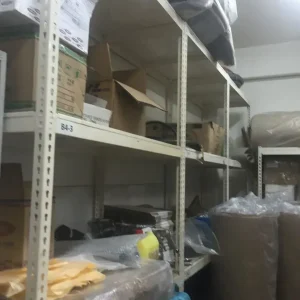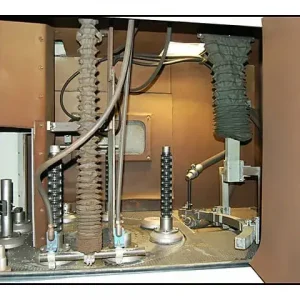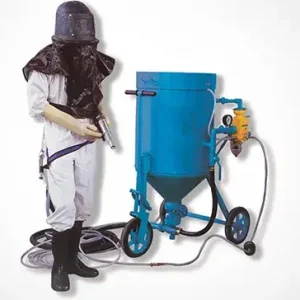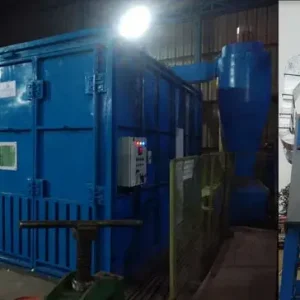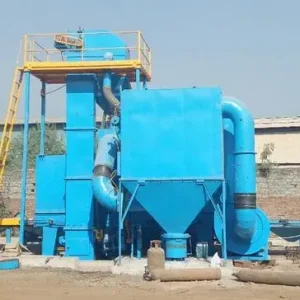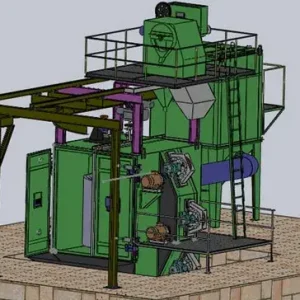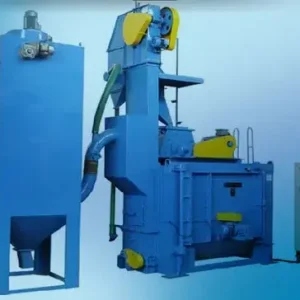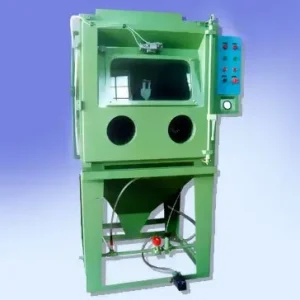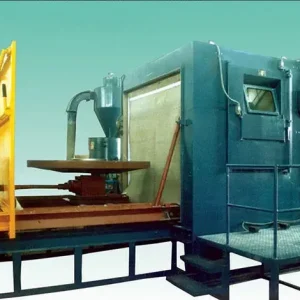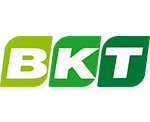Sand blasting is a powerful surface preparation technique used across industries such as construction, automotive, metal fabrication, and shipbuilding. It is a method where abrasive particles are propelled at high speed against a surface to clean, smooth, or prepare it for further processing like painting or coating.
In this guide, we’ll cover what sand blasting is, how it works, its applications, and benefits — everything you need to know to understand this essential industrial process.
How Sand Blasting Works
Sand blasting works on the principle of abrasion. A high-pressure air stream propels abrasive media, typically sand, glass beads, or steel grit, against the surface. The impact removes:
- Rust
- Paint or coatings
- Scale and oxides
- Contaminants
Depending on the type of media, pressure, and nozzle, sand blasting can either smooth a surface, roughen it for better coating adhesion, or provide decorative finishes.
Types of Sand Blasting Machines
Sand blasting machines are designed for different applications:
- Portable Sand Blasters
- Compact, handheld units for small jobs and maintenance work.
- Cabinet Type Sand Blasters
- Enclosed units for precise blasting, suitable for medium-sized parts.
- Automatic Sand Blasting Machines
- Conveyor or robotic systems for high-volume industrial operations.
Common Abrasive Media Used
- Sand – Traditional, low-cost, but requires safety precautions.
- Glass beads – Gentle on surfaces, ideal for finishing work.
- Aluminum oxide – Hard and durable, good for heavy-duty cleaning.
- Steel grit or shot – Aggressive cleaning for thick coatings or castings.
Applications of Sand Blasting
Sand blasting is used in many industries for:
Applications of Sand Blasting in Heritage Building Restoration
Comparing Wet and Dry Blast Cabinets: Pros & Cons
How to Choose Between Tumblast and Table Type Shot Blasters
- Surface cleaning: Removing rust, paint, and scale.
- Surface preparation: Creating a rough profile for powder coating or painting.
- Metal finishing: Smoothing rough edges or polishing surfaces.
- Restoration: Cleaning heritage structures, monuments, or machinery.
Benefits of Sand Blasting
- Efficient cleaning: Quickly removes contaminants compared to manual methods.
- Improved coating adhesion: Prepares surfaces for painting or powder coating.
- Versatile: Can handle metal, wood, concrete, glass, and more.
- Environmentally safer: Modern machines use recyclable media and dust collectors.
Safety Considerations
Sand blasting generates dust and airborne particles, which can be hazardous if inhaled. Key safety measures include:
- Wearing protective gear like helmets, gloves, and respirators.
- Using dust collection systems to capture airborne particles.
- Following proper operational procedures to avoid accidents.
Conclusion
Sand blasting is an essential process in modern manufacturing and construction, offering efficient cleaning, surface preparation, and finishing solutions. Choosing the right machine, media, and safety practices ensures optimal results while protecting both operators and the environment.
At AeroWheel Surface Finishing, we provide high-quality sand blasting machines and solutions tailored to your industry needs, ensuring safe, efficient, and precise surface finishing.








